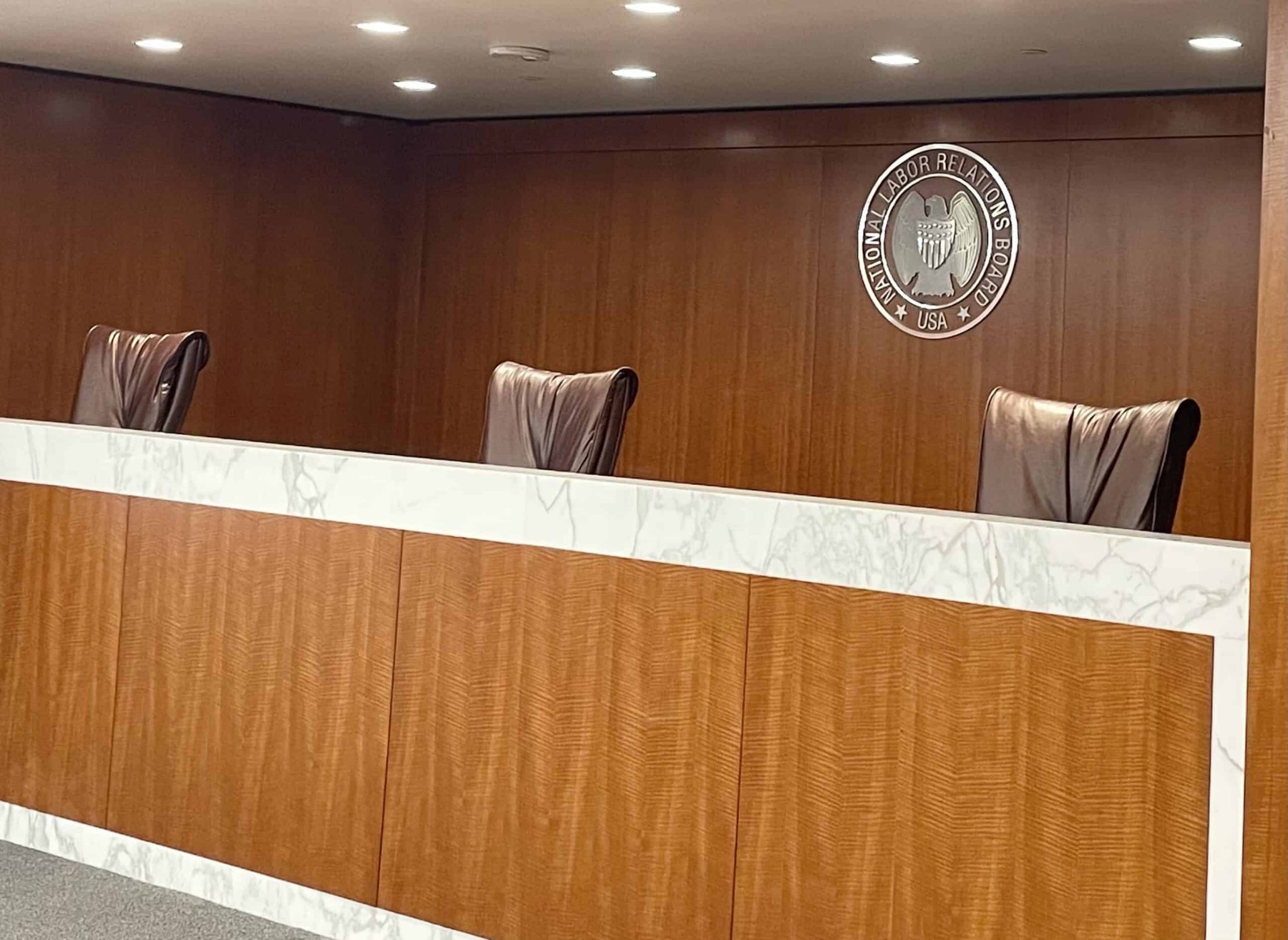
Jason Vazquez is a staff attorney at the International Brotherhood of Teamsters. He graduated from Harvard Law School in 2023. His writing on this blog reflects his personal views and should not be attributed to the Teamsters.
On Sunday the Senate approved the $369 billion Inflation Reduction Act, the Democrats’ sprawling social spending bill that may amount to “one of the single biggest investments ever made on climate.”
The final package is relatively moderate in many respects, stripping several of the more transformative and redistributive aspects of President Biden’s sweeping Build Back Better vision. Among other things, the Senate removed the billions of dollars in funding which Biden’s original proposal would have channeled to the various federal agencies charged with enforcing labor and employment laws. This omission prompted the union representing NLRB staff to unleash a stream of tweets blasting congressional Democrats for bypassing an opportunity to increase the Labor Board’s funding, which has remained stagnant for nearly a decade. The agency’s persistent budget shortfalls, the union says, have plunged it into “a crisis.”
Shifting to employment law enforcement, New York City announced on Tuesday that it has secured a $20 million agreement with Chipotle Mexican Grill to settle hundreds of thousands of alleged violations of the city’s wage and hour laws. The eye-catching sum — the largest worker settlement in the history of the Big Apple — will be distributed to nearly 13,000 current and former Chipotle employees. In unveiling the agreement, mayor Eric Adams expressed gratitude to SEIU 32BJ, which had uncovered many of the underlying violations. In this way, the settlement demonstrates unions’ important capacity not only to improve working conditions for their members but to strengthen and vindicate the rights of all working people.
Vox Media released a video essay on Tuesday exploring the collapse of union density in the private sector, which it attributed primarily to global economic trends, maximal employer resistance, and restrictive changes to federal labor law. The video succinctly describes the neoliberal forces that have unraveled the labor movement, presenting a narrative largely sympathetic to unions and workers. Yet it is most significant in that it reflects — along with the other content Vox continues to release regarding unions and unionization — the surge of enthusiasm for organized labor among many young progressives.






Daily News & Commentary
Start your day with our roundup of the latest labor developments. See all
January 8
Pittsburg Post-Gazette announces closure in response to labor dispute, Texas AFT sues the state on First Amendment grounds, Baltimore approves its first project labor agreement, and the Board formally regains a quorum.
January 7
Wilcox requests en banc review at DC Circuit; 9th Circuit rules that ministry can consider sexual orientation in hiring decisions
January 5
Minor league hockey players strike and win new deal; Hochul endorses no tax on tips; Trump administration drops appeal concerning layoffs.
December 22
Worker-friendly legislation enacted in New York; UW Professor wins free speech case; Trucking company ordered to pay $23 million to Teamsters.
December 21
Argentine unions march against labor law reform; WNBA players vote to authorize a strike; and the NLRB prepares to clear its backlog.
December 19
Labor law professors file an amici curiae and the NLRB regains quorum.